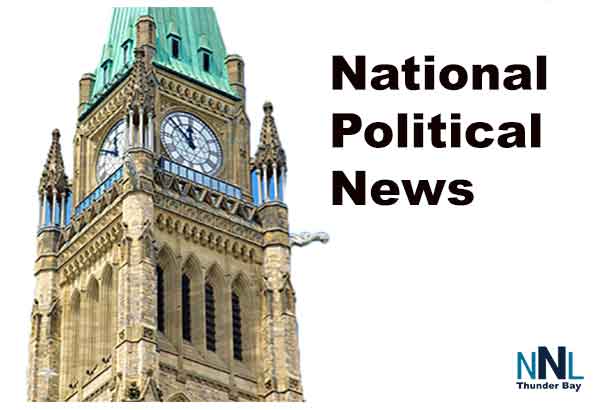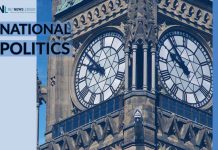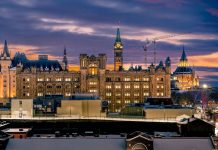OTTAWA – POLITICS – In the aftermath of Election 2021, the political ramifications are starting to be made and heard.
Often on election night if there is a defeat the Leader of a Party will take responsibility and decide to resign as party leader.
That didn’t happen on election night, and the leaders of all three major national parties can point to good results in the voting numbers.
Now a Maru Public Opinion poll finds that whether it’s what they believe has been left behind as a result of the election, whether democracy works or not, or (with only a couple of exceptions) the job prospects for the main party leaders from the end of this election to leading in the one that comes next, Canadians are a divided lot, living in what they believe to be very divided country.
The vast majority (77%) of Canadians believe the country is more divided now than it was before the election was called.
Only one quarter (23%) say the country is more unified since Prime Minister Justin Trudeau stood in front of the Governor General’s residence and announced that Canadians would be going to the polls on September 20, 2021.
Those who believe that the country is more divided than before the election was called are represented in every dimension of the country: a full majority in every region, and each socioeconomic demographic.
Those most likely to indicate the country is more divided than it was before the election hail from Alberta (88%), followed by those living in Manitoba/Saskatchewan, Ontario (79%), British Columbia (77%), Atlantic Canada (70%), and Québec (69%). Men (78%) and women (76%) share this view equally, except for the youngest Canadians (aged 18–34, 67%) who are less likely to accept this premise and the oldest Canadians (aged 55+, 82%) who are more likely to believe it is the case.
Every other cohort aligns with the national norm. The minority (23%) of Canadians who think the country is now more unified than before the election was called are most likely to reside in Québec (31%) and Atlantic Canada (30%), followed by those living in British Columbia (23%), Ontario (21%), Manitoba/Saskatchewan (17%), and Alberta (12%). Canadians split: Slim majority (52%) believe democratic process broken and needs a major overhaul… Reflecting on what the election campaign produced (and despite the disappointing outcome for some supporters and voters) Canadians are split with a slim majority (52%) who believe the democratic process in Canada is broken and needs a major overhaul whereas a minority (48%) believe the democratic process in the country is alive and well.
Those who believe the democratic process in Canada is broken and needs a major overhaul (52%) are most likely to reside in Alberta (63%), followed by those living in Manitoba/Saskatchewan (58%), Atlantic Canada (54%), Ontario (53%), British Columbia (48%), and Québec (44%). Women (54%) are slightly more likely than men (50%) to hold this view while those who are younger, and middle-aged Canadians (aged 18–54, 56%) are more likely than older Canadians (45%) to take this perspective.
Except for those who are the highest income earners (58%), all the other income and education variables approximate the national norm. For those who believe the democratic process is alive and well (48%), they’re most likely to be found in the province of Québec (56%), followed by those living in British Columbia (52%), Ontario (47%), Atlantic Canada (46%), Manitoba/Saskatchewan (52%), and Alberta (37%). Men (50%) are more likely to hold this view than women (46%) along with those who are older (aged 55+, 55%) and earning less than $100,000 a year (52%).
All education variables are consistent with the national average. Should they stay or should they go?
In the wake of the recently held federal election, Canadians were asked to choose between whether the leaders of the major federal political parties in Canada should either resign and let the new leader take over or stay on and lead the party into the next election.
It should be noted that this is the general population of Canada and not broken out into voting factions or supporters.
Further, in order to achieve a majority government, a party must achieve approximately 37% to 38% of the national vote.
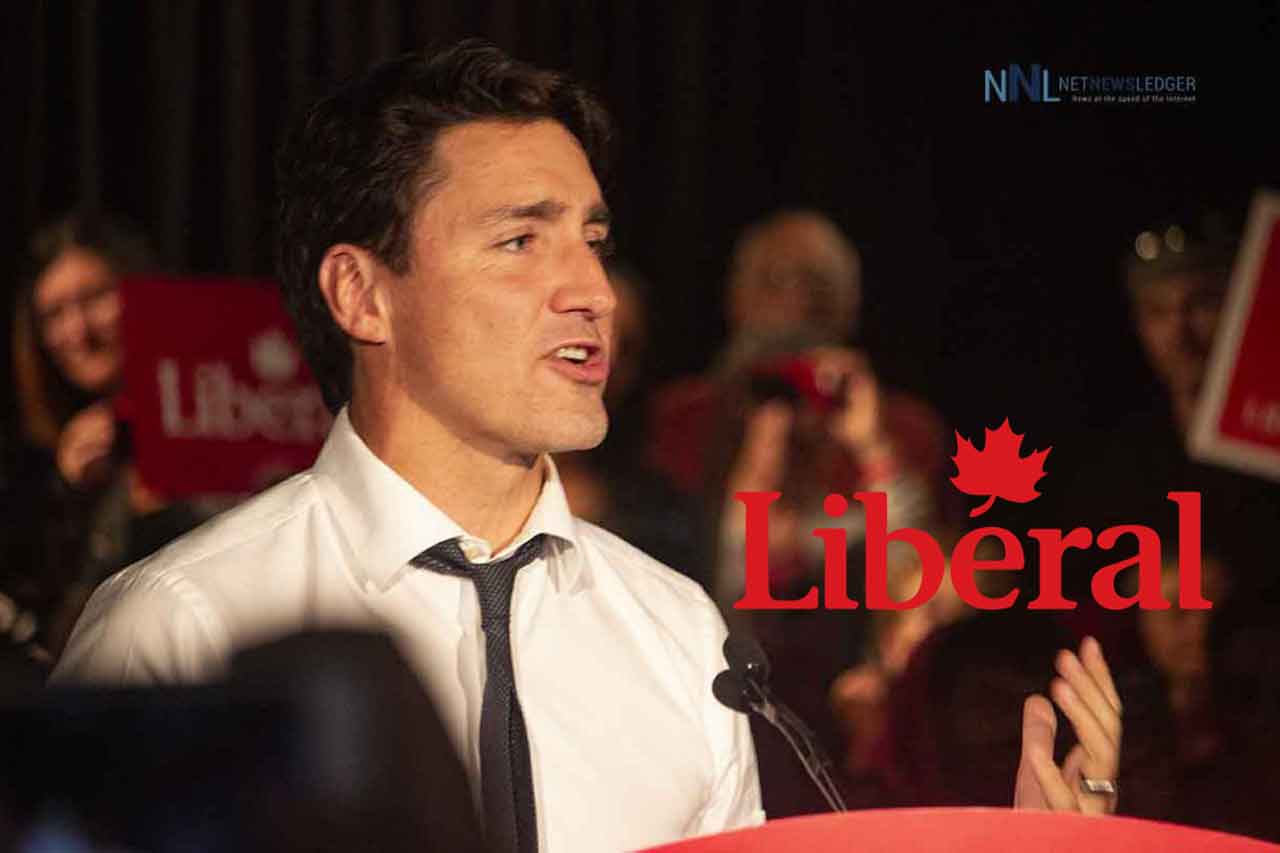
Prime Minister Trudeau: Resign and let a new leader take over 55%/ Stay on and lead the party into the next election 45%… When the Federal election was called by Prime Minister Trudeau he had a minority government. In the 2019 election, the Liberals earned the most seats of any party in the parliament but were dependent on the support of one or more parties – usually the New Democratic Party (NDP) – in order to form a government and to pass various pieces of legislation.
Mr. Trudeau was hoping to achieve a majority government when he called the 2021 election, but the electoral landscape following the vote on September 20, 2021, is almost identical to what existed before Canadians went to the polls, producing another minority government. As such, a majority (55%) of Canadians believe Prime Minister Justin Trudeau should resign as the leader of the Liberal Party and commence a process where a new leader can be chosen and who would be the Prime Minister until the next election was called, compared to a minority (45%) who believe that he deserves to stay on and lead the Liberal party into the next election which could come within the next 18 months or so.
Resign and let a new leader take over 55%: most likely residing in Manitoba/Saskatchewan (71%), followed by those living in Alberta (64%), British Columbia (60%), Ontario (57%), Atlantic Canada (50%), and Québec (44%). More likely to be men (61%) than women (50%), and older Canadians (55+, 58%) versus middle-aged (35–54, 55%) and the youngest Canadians (aged 18–34, 52%).
Stay on and lead the party into the next election 45%: most likely to be living in Québec (56%), followed by those residing in Atlantic Canada (50%), Ontario (43%), British Columbia (40%), Alberta (36%), and Manitoba (29%). More likely to be women (50%) compared to men (39%), with younger Canadians (aged 18–34, 48%) more likely to take this view than those who are middle-aged (35–54, 45%) and older (55+, 42%).
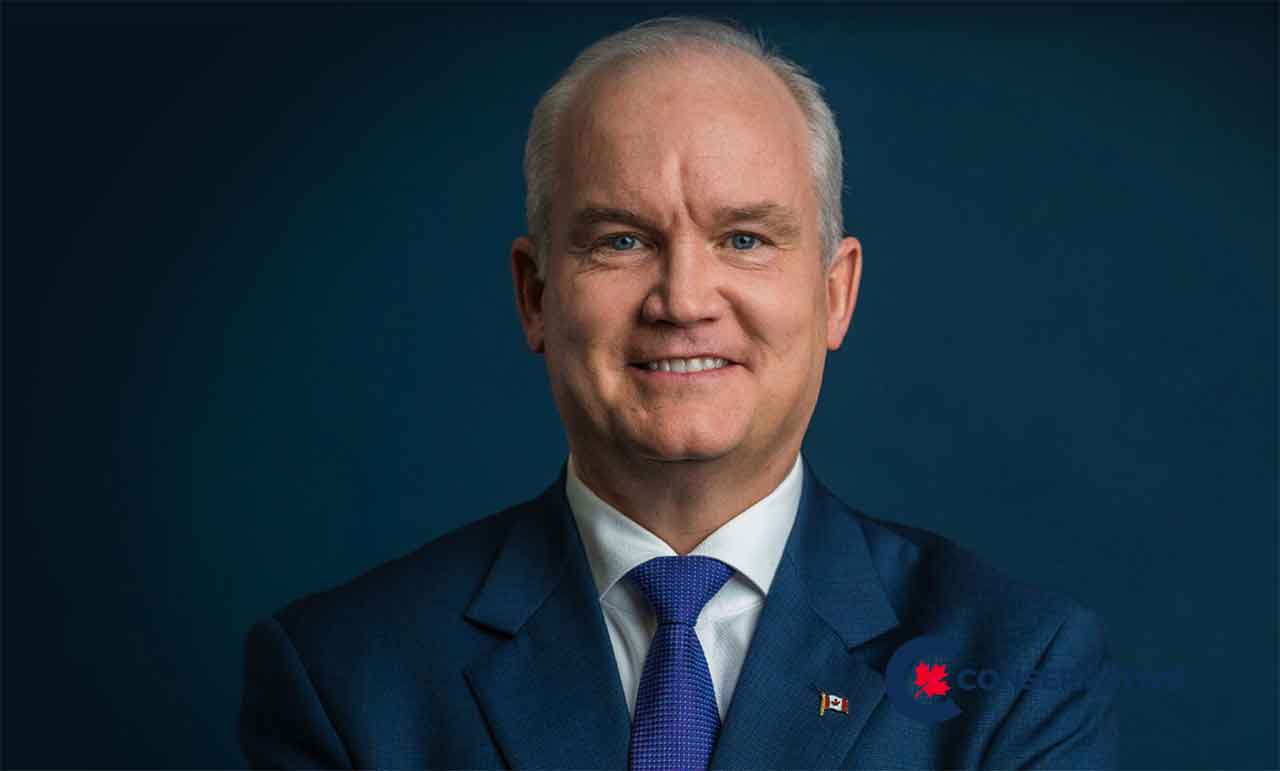
Erin O’Toole, leader of the Conservative Party of Canada: Resign and let a new leader take over 51%/Stay on and lead the party into the next election 49%… Canadians are split on whether the new leader of the Conservative Party of Canada should resign and let a new leader take over (51%) or stay on and lead the party into the next election (49%).
Those most likely to want Mr. O’Toole to resign (51%) can be found in Atlantic Canada (65%), followed by those living in British Columbia (57%), Ontario (54%), Alberta (48%), Québec (45%), and Manitoba/Saskatchewan (38%). Women (53%) and men (50%) split their views along with roughly every other age and income/education denominator across the country.
As for those who want to have Mr. O’Toole stay on and lead the Conservative Party of Canada into the next election (49%), they are most likely to be found in Manitoba/Saskatchewan (62%), followed by those living in Québec (55%), Alberta (52%), Ontario (46%), British Columbia (43%), and Atlantic Canada (35%). Men (50%) and women (47%) split their views on this possibility, while virtually every other socioeconomic descriptor is roughly the same as the national norm.

Jagmeet Singh, leader of the New Democratic Party (NDP): Stay on and lead the party into the next election 69%/Resign and let a new leader take over 31%… Mr. Singh is the only national leader to have a full majority (69%) who believe he should stay on and lead his party into the next election. He is supported in this role by full majorities in British Columbia/Alberta/Atlantic Canada (77%) along with those in Manitoba/Saskatchewan (71%), Ontario (68%), and Québec (60%). Women (74%) are more likely than men (64%) to hold this view while young Canadians (aged 18 – 34, 71%) are just slightly more likely to support Mr. Singh than those who are both middle-aged and oldest (68%). Those with the highest incomes ($100,000, +72%) and those who are the most educated (university+, 75%) are just slightly more evident than other income and education groups who support him in continuing in his role. B
Alternatively, a minority (31%) believe that Mr. Singh should resign and let a new leader take the NDP into the next election. Those most supportive of his resignation are found in the province of Québec (40%), followed by those living in Ontario (32%), Manitoba/Saskatchewan (29%), and equally in British Columbia/Alberta/Atlantic Canada (23%). Men (36%) are more likely than women (26%) to hold this view and, except for the highest income earners ($100,000+, 28%) and those who are the most educated (university +25%), all other income and education cohorts are roughly equivalent to the national norm.
Annamie Paul, leader of the Green Party: Resign and let a new leader take over 55%/ Stay on and lead the party into the next election 45%… A majority (55%) of Canadians believe that Ms. Annamie Paul, leader of the Green Party, should resign and let a new leader take over. Those most likely to have this view live in the province of British Columbia (63%), followed by those residing in Atlantic Canada (57%), Alberta/Québec (56%), Ontario (52%), and Manitoba/Saskatchewan (48%). Men (62%) are more likely to hold this view than women (48%), while those who are the oldest Canadians (55+, 64%) are more likely than those who are middle-aged (35–54, 53%) and Young Canadians (aged 18–34, 46%) to take this perspective. Those who are middle income ($50,000 – $99,000 per annum, 57%), along with those who are both the least educated (59%) and most (university+, 56%), are more likely to support this course of action than their counterparts.
Those who believe that Ms. Paul should lead the Green party into the next election (45%), are most likely to live in Manitoba/Saskatchewan (52%), followed by those residing in Ontario (48%), Alberta/Québec (44%), Atlantic Canada (43%), and British Columbia (37%). Women (52%) are far more likely than men (38%) to want Ms. Paul to stay the course, and they are enjoined by the most enthusiastic cohorts of the youngest Canadians (aged 18–34, 54%) and those with postsecondary education (college/technical school, 52%). All other economic and education groups are roughly equal to the national norm.
Yves-François Blanchet, leader of the Bloc Québécois (BQ) (only asked in Quebec): Stay on and lead the party into the next election 67%/Resign and let a new leader take over 33%… A solid majority (67%) of those living in Québec believe that Mr. Yves-François Blanchet, the leader of the Bloc Québécois (BQ), should stay on and lead the party in the next election. Men (70%) are more likely than women (64%) to hold this view, along with those who are the oldest (55+, 77%) compared with those who are middle-aged (35–54, 63%) and the youngest (aged 18–34, 58%) Quebecers. Those with higher income ($100,000, +71%), and those with postsecondary education (college/technical school, 71%), are somewhat more likely than other income and education cohorts to support Mr. Blanchet to stay the course.
For the minority (33%) who believe that Mr. Blanchet should resign and let a new leader take over the party and lead into the next election, they are more likely to be female (36%) than male (30%) and are younger (aged 18–34, 42%) compared to those who are middle-aged (35–54, 37%) and older (55+, 23%). Those who have the lowest income (less than $50,000 per annum, 36%) and are the least educated (high school or less, 37%) are slightly more likely to take this view than those in other income and education groupings.
The Opinions Expressed are those of the author and do not reflect the views of NetNewsLedger.com

